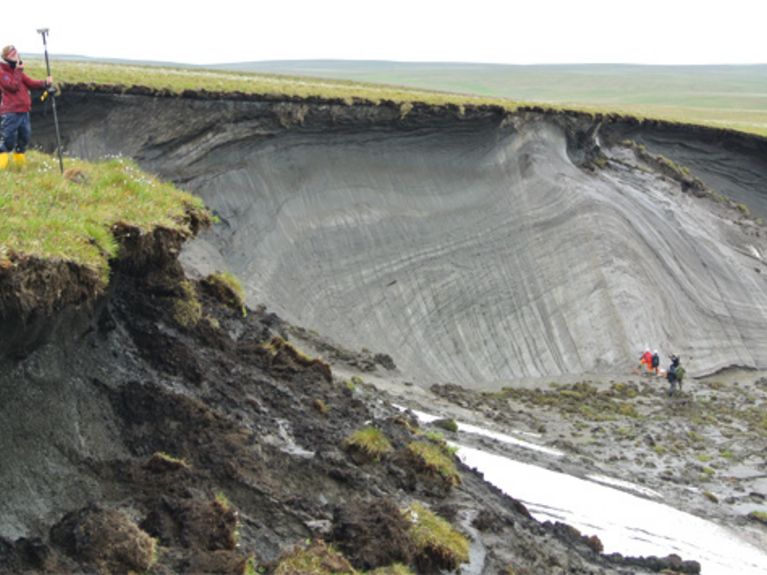Permafrost
The big thaw

AWI-scientist Stefanie Weege surveys the coastline of Herschel Island (Canada) via GPS, in order to record the scope of coastal erosion. Picture: Boris Radosavljevic/Alfred-Wegener-Institut
Permafrost was understood for many years as a “niche topic” – until scientists found out that the permanently frozen terrain could turn into a time-bomb in the context of climate change. A conference with the worldwide leading research scientists is now taking place in Potsdam.
In the summer, when Hans-Wolfgang Hubberten with his colleagues was trudging ankle-deep through the Siberian mud, he yearned from time to time to be sitting in his office on the Potsdam Telegrafenberg. The mosquitoes in North Russia were not only big; they were hungry as well, and were able to bite effortlessly through the researcher's jeans. So they had to put on more layers of clothes, even though the temperatures throughout the day reached spring-like levels. The mixture of sweat, mud and mosquito repellent became an imposition for even the most hard-boiled professionals in the course of the day.
Readers comments